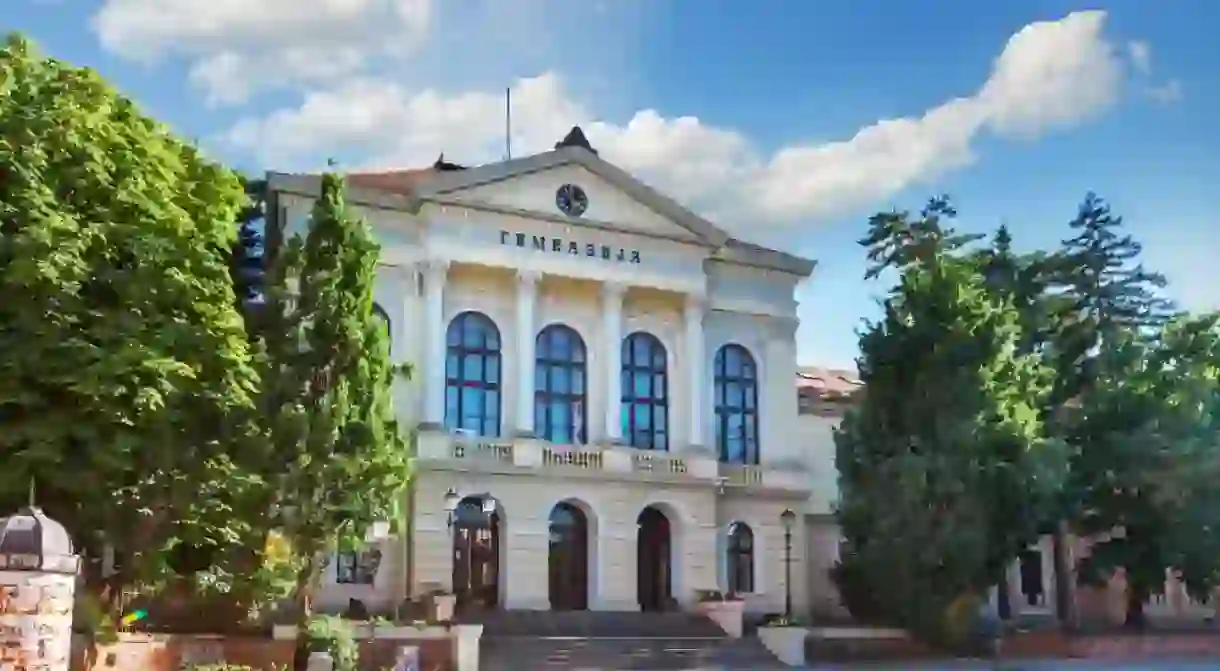The 10 Best Books in Modern Serbian Literature

Serbia has a history of literature that is as long as it is proud, and the present isn’t too shabby either. The nation is full of creative writers with stories to tell, and every passing year brings new books worthy of love and attention. Putting aside questions of what ‘modern’ actually means, these are the finest Serbian books of that era. Unfortunately, not many have been translated into English.
Dictionary of the Khazars – Milorad Pavić
The oldest book on this list, this classic by Milorad Pavić was first published in 1984 and translated into English four years later. It is as far away from a conventional novel as you can get, instead being set out as three encyclopaedias telling the tale of the mass conversion of the Khazars, but there is a reason this is one of the most popular books in the region. A triumph of style, work and imagination.
Hidden Camera – Zoran Živković
Not to be confused with the former Serbian Prime Minister of the same name, Zoran Živković is one of the finest contemporary writers in the nation. Most of his books hit the right spot, but Hidden Camera gets our vote for being the most engaging and immersive. The story of a man who may or may not be involved in a hidden camera show, the book ramps up the absurdity before reaching its fascinating climax. As far as commentaries on modern narcissism go, this is one of the best.
Komo – Srdjan Valjarević
Not yet translated into English, Komo is the finest work from the wildly productive Srdjan Valjarević. The story of a writer offered the opportunity to work by Lake Como, the book named after the body of water weaves a number of themes into one cohesive tale, struggling with false hope, lost excitement and the frustrations of the modern world to name just three.

The Rise and Fall of Parkinson’s Disease – Svetislav Basara
The former Serbian ambassador to Cyprus, Svetislav Basara is a complicated figure to say the least. His 1987 classic The Cyclist Conspiracy is considered to be one of the finest books of that decade, and his 2006 book The Rise and Fall of Parkinson’s Disease romped home with that year’s NIN Award. Deservedly so too, as the book takes the reader on an intense journey through fact, fiction, disease and health in the miserable surroundings of a Siberian gulag.

The House of Remembering and Forgetting – Filip David
Born in the central Serbian city of Kragujevac, Filip David was the founder of the literary society Belgrade Circle in 1990, a group of intellectuals that were actively opposed to the politics of Slobodan Milošević. The House of Remembering and Forgetting tells the story of two boys saved from a Nazi concentration camp, coming to terms with evil in the world. It isn’t an easy read, but it is an important one.

Sudbina i komentari – Radoslav Petković
Sudbina i komentari (Fate & Commentary) tells the story of Pavel Volkov, a Russian officer of Serbian descent who finds himself in the Italian city of Trieste at the beginning of the 19th century, before becoming privy to a variety of major events in what was then the Habsburg Empire. As historical and philosophical as anything else, major questions of nationalism and enlightenment are tackled in this captivating tome.

Bernardi’s Room – Slobodan Tišma
Serbian literature isn’t afraid to doff its cap in the direction of history, but Slobodan Tišma’s 2011 novel obscures this under layers of unusual motives and unorthodox characters. The book comes with a user manual, something that initially feels like a gimmick but becomes increasingly important throughout. One to stick with, and it certainly rewards those who do.
Tai – Goran Gočić
The idea of reading about the trials and tribulations of a Western man heading off to Thailand to fix his broken life might not be too appealing, but Goran Gočić wraps that potentially unfortunate plot up in more than enough existentialism to make it a fine read. A book full of romance and philosophy, this isn’t for everyone but will certainly beguile those who commit to it.
Tesla: A Portrait With Masks – Vladimir Pištalo
Serbs don’t come much more beloved than Nikola Tesla, the inventor who emigrated to the United States and eventually invented the 20th century (which isn’t really an exaggeration). Sarajevo-born Vladimir Pištalo intertwines the story of the great man with some of the most important events in all of history, shining a light on the normality of existence and our relative lack of progress along the way.

Hobo – Zoran Ćirić
It doesn’t take a Serbian scholar to understand the subject matter of this book judging by the title, and the darkness of the streets most definitely come to the fore in this 2001 novel. There is plenty of humour along the way, albeit comedy that should definitely be stowed away under the ‘dark’ heading. The criminal underworld of Serbia is also covered here, making this an entertainingly oppressive read.













